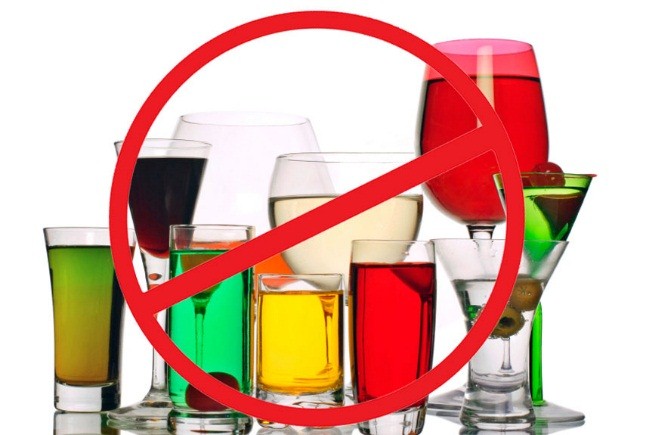Most see consuming alcohol as a fun experience and the more alcohol present, the better time one can have. For others, though, it may result in immediate and extremely unpleasant reactions, ranging anywhere from headaches to nausea. Those who suffer from alcohol intolerance can be identified by the most common symptoms of nasal congestion and skin flushing. Although it is sometimes mistakenly referred to as an allergy, alcohol intolerance is actually a genetic condition that prevents the body from being able to break down the alcohol and the only prevention method is to avoid alcohol at all costs, or the very least drink known to cause any type of reaction.
For some, what seems to be a reaction to alcohol is actually a reaction to another element within the drink. For example, many alcoholic drinks contain certain chemicals, preservatives and grains that can cause reactions not only to that drink, but other things as well. There are also medications that can cause reactions when mixed with alcohol. Lastly, in rare cases, reactions to alcohol can indicate serious health problems.
What Are the Symptoms of Alcohol Intolerance?
 As previously stated, the two most common symptoms are nasal congestion and skin flushing, but these are not the only symptoms that may indicate alcohol intolerance. Others can include wheezing, worsening of asthma, rashes, headaches, pain in the abdomen, feeling nauseated, heartburn, and even getting physically sick immediately after the consumption of an alcoholic drink.
As previously stated, the two most common symptoms are nasal congestion and skin flushing, but these are not the only symptoms that may indicate alcohol intolerance. Others can include wheezing, worsening of asthma, rashes, headaches, pain in the abdomen, feeling nauseated, heartburn, and even getting physically sick immediately after the consumption of an alcoholic drink.
In order to limit any or all of the above symptoms, the best option is to avoid alcohol, or at the very least limit the amount being consumed. Remember that sometimes the symptoms can be made worse by mixing with medications, such as Antabuse.
When to See a Doctor
If the symptoms you suffer from indicate a mild intolerance, it may not be necessary to see a doctor, but instead limit your intake of alcoholic beverages. On the other hand, if any type of severe allergic reactions occur, then it is vital to see a doctor as these symptoms could be related not only to an allergy, but could also be an indication of other health issues.
What Are the Causes & Risk Factors of Alcohol Intolerance?
Causes
When a person’s body doesn’t have the proper enzymes to break down an element, such as alcohol, it becomes an allergy and is often inherited. Since each person’s body is different and unique, there is no specific cause, but it is believed that alcohol intolerance is most commonly caused by various preservatives, chemicals, grains, histamine, and other ingredients that may appear in alcoholic beverages. Reactions to alcoholic beverages can be triggered by any of the previously mentioned causes.
Risk Factors
|
Type |
Description |
|
Specific Allergies |
Allergic reactions, specifically those to grains or other ingredients used in alcoholic beverages, are cited as one of the main causes of alcohol intolerance. |
|
Ailments |
Suffering from Hodgkin lymphoma – a lymph tissue cancer – can increase the risk of having an alcohol intolerance. |
|
Inheritance |
Those of Asian descent or more likely to suffer from alcohol intolerance. |
|
Prescriptions |
Drugs such as Metronidazole and Griseofulvin may prevent the effect of ALDH (which helps break down alcohol) while also causing an oriental flushing syndrome. Also, disulfiram, or Antabuse, which is taken for alcohol abuse, can cause flushing, increased heart rate, vomiting and feelings of nausea when mixed with alcoholic drinks. |
How Can I Know If I Have Alcohol Intolerance?
There is a four step process to determining if you may suffer from alcohol intolerance. Remember that only a doctor can officially diagnose you and your symptoms, but the following can help you determine if you may be suffering from alcohol intolerance.
- Describe symptoms
Keep a close eye on what symptoms you suffer around the time you have consumed alcohol. Also, be sure to know your genetic history of family members with allergies.
- Conduct a physical examination
Being carefully examined by a doctor can determine exactly what the cause may be, while dismissing other possible options.
- Take a skin test
This is a method of testing for allergic reactions to various products, such as grains. If your skin becomes raised or starts having rashes after being pricked with a small of the product you may be allergic to you, then you will have discovered precisely what elements in an alcoholic drink you are allergic to, so you can know what to avoid.
- Take a blood test
Another test that can determine not only allergies, but also the state of your immune system, is a blood test. This type of test will look for immunoglobulin antibodies, those that fight off allergies, but it is not always an accurate test.
What Are the Suggestions for Living with Alcohol Intolerance?
 When it comes to living with alcohol intolerance, there is no direct cure for everyone, as each person may have different levels of intolerance. For example, if you suffer a mild reaction to alcoholic beverages, such as itching or getting hives, you may simply need to take an over the counter antihistamine. However, if you tend to suffer severe allergic reactions, an antihistamine will not quell the symptoms and you may need to seek immediate medical attention, depending on the severity of your reaction.
When it comes to living with alcohol intolerance, there is no direct cure for everyone, as each person may have different levels of intolerance. For example, if you suffer a mild reaction to alcoholic beverages, such as itching or getting hives, you may simply need to take an over the counter antihistamine. However, if you tend to suffer severe allergic reactions, an antihistamine will not quell the symptoms and you may need to seek immediate medical attention, depending on the severity of your reaction.
In order to determine if alcohol intolerance truly is the cause, your doctor may suggest an elimination diet where you spend two to four weeks consuming absolutely no alcohol. After this time, you will be allowed to reintroduce alcohol to see if it has been the culprit, or if perhaps a specific type of alcoholic drink was the cause.
In general, your best bet to live comfortably with alcohol intolerance is simply to avoid consuming any alcoholic beverages. These drinks typically are not good for you overall, and may help you see an improvement with your health.
Depending on the severity of your reactions, it may be possible that your doctor will prescribe emergency epinephrine, such as an EpiPen or Twinject. This devices contain a single dose of epinephrine, adrenaline, which can immediately decrease the severity of your symptoms and avert in life-threatening risks.
